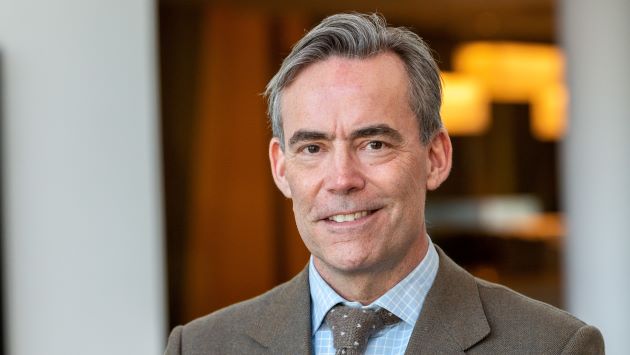6 September 2022 | Oslo, Norway [Tor Tjeransen]
Participants at the Nordic Health Congress in Oslo, Norway, could hardly believe their ears when researcher Niels Christian Hvidt informed them that Adventist and Baptist males in Denmark have a 97% lower risk of dying in a traffic accident, compared to the general population.

The Nordic Health Conference 2022 was held on 18-20 March in Norway [Photos: Tor Tjeransen/Adventist Media Exchange, CC BY 4.0]
Unique research
In a presentation entitled “Can Faith Move Mountains?”, Dr Hvidt shared ample evidence supporting how faith is a significant contributor to good health, drawing from a variety of studies, including “The Danish religious societies health study”.
Dr Hvidt, Professor of Spiritual Care at the University of Southern Denmark and his research partner, Dr Christoffer Johansen, research head at the Department of Oncology at Rigshospitalet, the largest and most specialized hospital in Denmark, conducted a unique study to discover how religious belief influences health. The sample comprised 5,000 Baptist participants and 7,000 Adventists who had been members of their respective denominations between 1920 and 2005.

“While specialization is good, it is important to remember that humans are not distinct parts, we are whole beings,” said Dr Hvidt
The study, which began in 2004, matched these participants with their official public health records (using Danish personal identification numbers, CPR numbers). By comparing the prevalence of various diseases in the sample with the general population, researchers found that religious individuals have significantly lower risk for various chronic diseases such as cancer and diabetes. Their findings were peer reviewed and published in several scientific journals.
Health benefits
The researchers believed that Adventist would have 20% lower risk of various types of cancer – in line with similar studies on vegetarians. However, the study showed that Adventists had a 37% lower risk of developing cancer, that is, an added benefit on top of what their dietary choices may account for.
Adventists in the sample also had a 30 % lower risk of diabetes compared to the general Danish population. The risk of developing liver cirrhosis proved to be 68% lower than the general population. With the Adventist stance on abstinence from alcoholic beverages, that is a benefit to be expected.
One finding which puzzled the researchers, and for which they have no explanation, was that women in the cohort had a 150% risk of being admitted to hospital with depression, while men were found to have a 15% reduced risk of the same. The fact that the cohort consists of twice as many women as men, might have influenced the results.
“Perhaps it has something to do with the fact that it is difficult for women to find a life partner in the church, and they may end up marrying someone with whom they do not share one of the most important aspects of life,” suggested Dr Hvidt. The finding regarding female depression is balanced by another finding regarding mental health: the risk of dying from suicide was found to be 92% lower for the male and 89% lower for female believers compared to the general population.
Even though some health benefits for believers were as expected, it was totally unexpected to find that the risk of dying in a traffic accident was 92% lower for women and 97% lower for men. The finding is so unexpected that it has made headlines in the Danish press.
Faith and health
Dr Hvidt is a theologian with a special interest in the links between health and faith -including how illness affects faith. In his presentation Hvidt noted how hospitals are one of the most scientifically oriented places in modern society, and, at the same time, one of the most existential and spiritual places. “How can we build bridges from the scientific to the spiritual?”, asked Hvidt. “Because we are so busy treating the patient, we rarely have time to stop and think about what spiritual needs the patient has.”
Dr Hvidt’s understanding of Scripture helped shape this research approach. Highlighting how approximately one-third of the verses in the Gospel of Mark refer to Jesus’ miracles, he reflected, “The healing miracles of Jesus are deeply integral to the Gospel account of who Jesus was.”
Critiquing excessive compartmentalization in health and care providers, Dr Hvidt added “Doctors, psychologists, and pastors have their clearly defined roles, and while specialization is good, it is important to remember that humans are not distinct parts, we are whole beings.”
“There is ample data which shows that patients become insecure and frustrated when we look at them merely as a bad knee, or a broken leg. Similarly, health and care professionals become frustrated when there is no time to care for the whole being. We need to bring back the wholistic view of man”, Dr Hvidt concluded.



